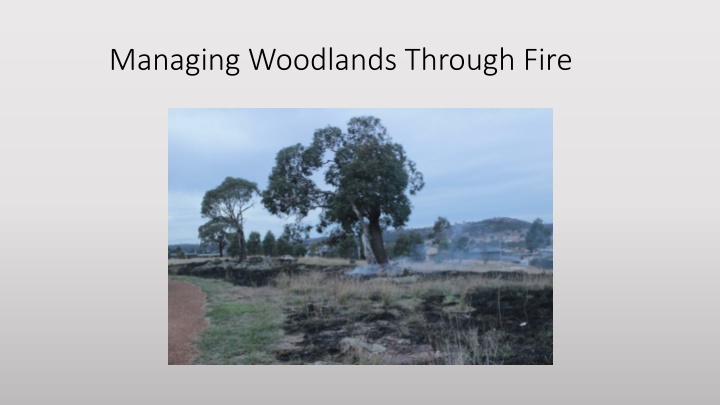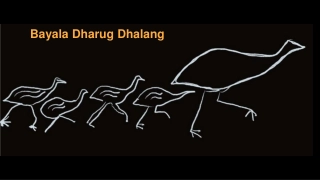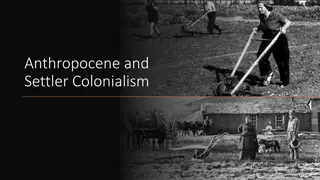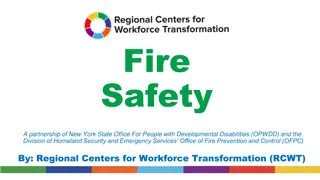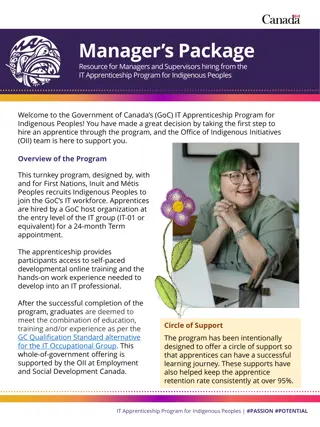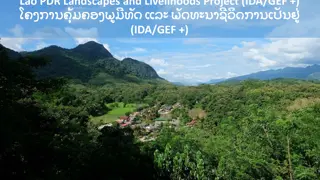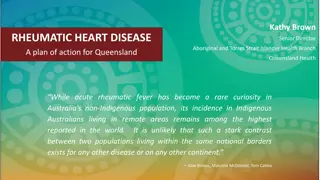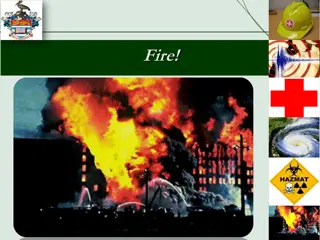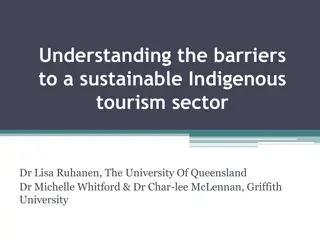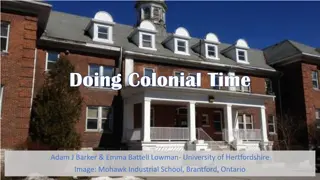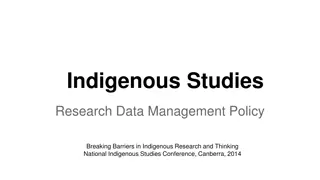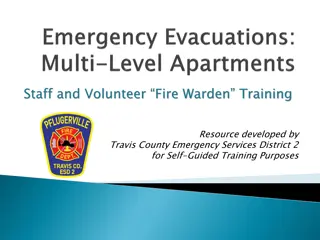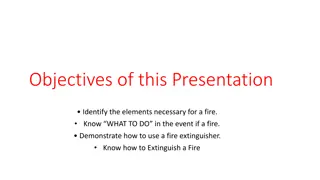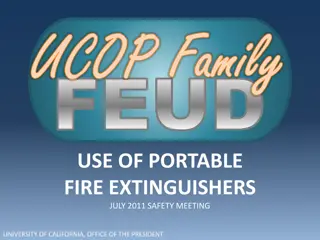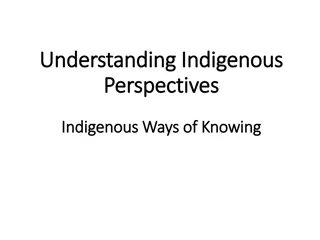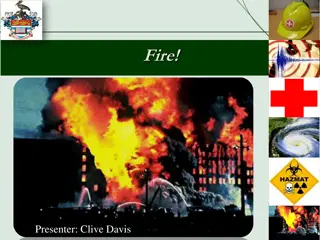Reviving Indigenous Fire Management Practices for Sustainable Landscapes
Explore the importance of cultural burning and reviving traditional Indigenous fire management practices in Australia. Learn how Indigenous communities are reconnecting with their land, sharing knowledge, and working to restore ecological balance through controlled burns. Join the movement towards sustainable land management and honoring traditional wisdom.
Download Presentation

Please find below an Image/Link to download the presentation.
The content on the website is provided AS IS for your information and personal use only. It may not be sold, licensed, or shared on other websites without obtaining consent from the author.If you encounter any issues during the download, it is possible that the publisher has removed the file from their server.
You are allowed to download the files provided on this website for personal or commercial use, subject to the condition that they are used lawfully. All files are the property of their respective owners.
The content on the website is provided AS IS for your information and personal use only. It may not be sold, licensed, or shared on other websites without obtaining consent from the author.
E N D
Presentation Transcript
Oliver Costello, Oliver Costello, Bundjalung man, Director - Firesticks Alliance Indigenous Corporation Just kilometres from the doorstep of Parliament House we sat and we shared food, space, warmth, laughter, knowledge of country and connection to it and each other. We spoke of times gone past and hopeful times ahead when our old ways will prevail back on country. For too long our old people sat without recognition on the fringes of their once rich and abundant country as they saw country decline and fall sick. The once common fires dotted across country, lit with intent and purpose slowly went cold and dull as the fires and spirit of the old people waned. Overtime, there was less and less fire until almost no more campfires were left - but now we are going another way. Now, there are more campfires and the sticks to carry them further and faster than the old people would believe. Whether on foot, wheeled or flying we travel to share our stories. With our knowledge and practice we are reforging out fire pathways back on country. We must take up the firesticks in honour of the old people and lore for country. It is time to not only light campfires on the edges of change but to also walk the paths of our ancestors and create the change that country teaches. Country has taught us lore, it is our responsibility to walk the land and learn. The same spark that taught our ancestors is here today. Fire starts and ends with the same elements - needing fuel, air and heat. Despite the diversity of fire, all fires have an intrinsic relationship with the elements of country. Working with fire in the ways of the old people we create light, warmth, food and above all lore. Lore from country. During the gathering it was a real honour to sit and yarn with so many inspiring people, especially those young ones, our future elders. As you read this report think of the old people and their connection to country and how you can share and play your part in honouring them and the ones to come.
There were repeated references to knowledge generation as occurring through and with Country, and as part of belonging with country. While the forum demonstrated the importance of research in supporting different kinds of collaboration, it also highlighted the need for clearer dialogue between Traditional Owners/Traditional Custodians and other institutions regarding what research is important for their priorities and how it should be produced. Strong interpersonal networks and institutions have been vital in the reintroduction of cultural burning throughout southern Australia. These have been important for sharing knowledge across Australia. The forum demonstrated the strengths and future potential of personal and institutional relationships between Aboriginal fire practitioners and government agencies involved in fire management. The case study presentations emphasised the mutually beneficial nature of such collaborations to date. Cultural burning was shown to be a focal point and interest for many different people, and this energy offers much for the potential for positive relationship-building between Aboriginal and non-indigenous Australians around a common concern for the health and safety of Country. There is a need to include a wider range of participants in discussions surrounding cultural burning. The forum demonstrated, in particular, the important knowledge and interests of women, elders and young people in relation to cultural burning.
